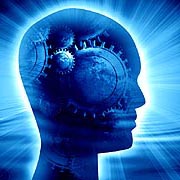What Is Working Memory?

When you are trying to recall a telephone number that was heard a few seconds earlier, the name of a person who has just been introduced, or the substance of the remarks just made by a teacher in class, you are calling on short-term memory, or working memory. This lasts from a few seconds to a minute; the exact amount of time may vary somewhat. You need this kind of memory to retain ideas and thoughts as you work on problems. In writing a letter, for example, you must be able to keep the last sentence in mind as you compose the next. To solve an arithmetic problem like (3 X 3) + (4 X 2) in your head, you need to keep the intermediate results in mind (i.e., 3 X 3 = 9) to be able to solve the entire problem.
The distinction between short-term memory and working memory is an ongoing debate. The terms are often used interchangeably. Many scholars, however, claim that some kind of manipulation of remembered information is needed in order to make the task a working memory task. According to Cowan, short-term memory refers to the passive storage of information when rehearsal is prevented with storage capacity around four items. When rehearsal is allowed and controlled attention is involved, it is a working memory task and the capacity is closer to seven items. Repeating digits in the same order they were presented would thus be a short-term memory task, while repeating them backwards would be a working memory task.
"Students who have difficulty with working memory often forget what they are doing while doing it," says Glenda Thorne, Ph.D., in her article '10 Strategies to Enhance Students' Memory.' "For example, they may understand the three-step direction they were just given, but forget the second and third steps while carrying out the first step. If they are trying to solve a math problem that has several steps, they might forget the steps while trying to solve the problem. When they are reading a paragraph, they may forget what was at the beginning of the paragraph by the time they get to the end of the paragraph. These students will look like they have difficulty with reading comprehension. In facts, they do; but the comprehension problem is due to a failure of the memory system rather than the language system."
According to researchers from Durham University, who surveyed over three thousand children, children who underachieve at school may just have poor working memory rather than low intelligence. They found that ten percent of schoolchildren across all age ranges suffer from poor working memory seriously affecting their learning.
|
Edublox offers brain-training programs, effective in overcoming deficits in working memory. Click here for more information.
|
|
